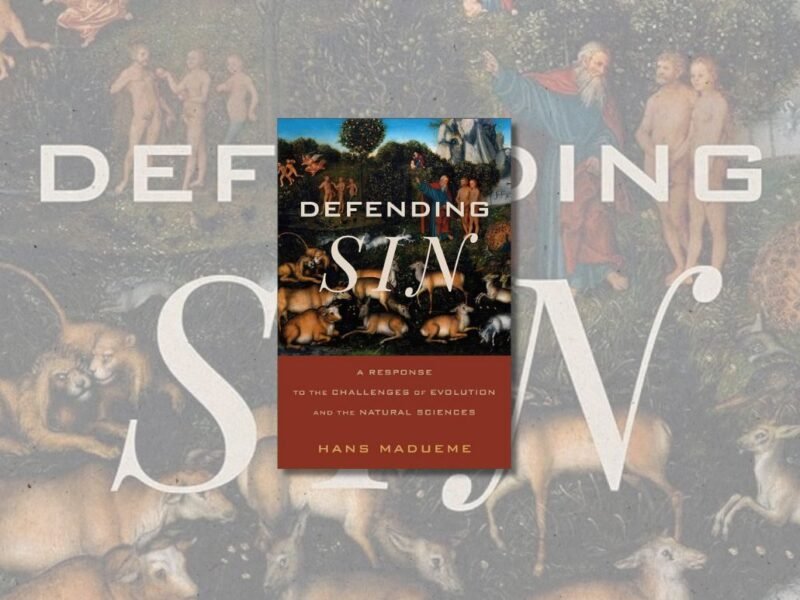The Authentic Reactionary: Selected Scholia of Nicolás Gómez Dávila. Edited by Michael J. Moynihan and Joshua Buckley. Translated with commentary by Ramon Elani. North Augusta, SC: Arcana Europa, 2023. xxxiii + 206 pp. $22 (paper).
In an age where conventional modern pieties are failing, attempts to recover traditional and reactionary thought are to be expected. These attempts often discover names that once enjoyed wider recognition and have only fallen into neglect within the past century or so. On the other hand, such attempts sometimes unearth figures who have heretofore been virtually unknown outside of rarefied circles. For most English speakers, the Colombian author Nicolás Gómez Dávila (1913‒1994) probably falls into the latter category. Indeed, among those who know his name at all, I suspect many are aware of him only through scattered social media accounts that have sporadically published some of his aphorisms in English.
It is therefore a matter of interest that a group known as Arcana Europa has recently published a new English edition of some of Gómez Dávila’s scholia. Unfortunately, the peculiar nature of this new edition and those who have produced it compels me to warn readers against purchasing it before even addressing the substance of Gómez Dávila’s thought, for reasons I will now explain.
To begin with, the publisher’s catalog is littered with titles such as Wyrd Times: Memoirs of a Pagan Renaissance Man, On Being a Pagan, and A Book of Troth, which is the author’s “vision of how Germanic paganism, or Ásatrú, can be practiced in the modern world.” The book’s editors, Michael J. Moynihan and Joshua Buckley, are also editors for the journal Tyr: Myth * Culture * Tradition, which “celebrates the traditional myths, culture, and social institutions of pre-Christian, pre-modern Europe.”[1] Moynihan is “a priest in the Church of Satan,” although he reportedly “has long found the heathen path more rewarding.”[2] Buckley “has been an occasional contributor to several heathen and music-related periodicals, including Vor Tru,” and his areas of interest have included “Iyengar yoga” and “the use of psychotropic drugs in the context of European tradition.”[3] The man who translated the book with commentary, Ramon Elani, is a “heathen poet” who has written numerous articles for the online journal A Beautiful Resistance, part of an umbrella of projects known as Ritona asbl, which is “a non-profit publishing organisation advocating for Pluralism, Tolerance, and Respect for Pagan, Indigenous, and non-industrial ways of being in the World.”[4] In his recent book, Wyrd against the Modern World, Elani argues that in the face of irreversible climate change, “as our world dies, we re-enter the mythic age of gods”:
For five hundred years we have been told, and largely believed, that we are the sole agent of the cosmos. The hidden folk we once counted among our kindred, the architects of modernity declared were superstitious illusions. Elemental powers, earth, water, air and oak became reduced to mere material. This moment of collapse proves to us that we were never in control, and that we were never alone. In the burning sun, the savage storm, and the rising sea, are the grim faces and voices of the gods and spirits that modernity so proudly put aside. It is said that at the end of the world, the dead will rise.[5]
Elsewhere, Elani has said that by engaging in various activities “we honor the gods and please the spirits. I do not speak metaphorically of these things.”[6] Finally, the book’s promoters are of the same ilk—with one or two exceptions, every single endorsement included with the book is from either a neopagan or a scholar of paganism, the occult, or Western esotericism. The first review for the book on its Amazon page was written by Stephen E. Flowers, a. k. a. Edred Thorsson, a neopagan who founded the Ásatrú organization known as the “Ring of Troth”[7] and, at one point, maintained dual membership with it and “the Satanic Temple of Set.”[8]
It is thus apparent that the neopagan influence behind this new English edition of Gómez Dávila is not scattered or happenstance, but the product of a committed network. Furthermore, the background and outlook of these people is not incidental—their aim is not simply to republish Gómez Dávila’s work and let it speak for itself, but to appropriate and reframe it for their own purposes. This is evident from the fact that Gómez Dávila’s words are far outweighed by Elani’s own: any given page contains only one or two of Gómez Dávila’s aphorisms, each of which is generally between one and three lines long. The rest of every page is filled with Elani’s copious commentary, effectively making this book a second authorial outing for Elani, with Gómez Dávila’s words serving as a springboard for Elani’s reflections.
Moreover, Elani frequently exposits Gómez Dávila in a way that goes beyond the text. For example, in commenting on Gómez Dávila’s observation that “history is irreversible. But it is not unrepeatable,” Elani asserts that history not only can repeat, but inevitably repeats: “The wheel of history may only turn in one direction, but it always keeps turning. Eventually, the wheel will come back around” (5). Gómez Dávila’s words do not entail what Elani claims. Indeed, in an aphorism not included in this book, Gómez Dávila notes in passing that Christianity has “[overcome] the notion of cyclical history.”[9] In another example, Gómez Dávila asks the question, “We may beg for mercy. But by what right do we demand justice?” Elani takes this as an opportunity to declare that justice is purely a human construct: “As the natural world knows nothing of justice, neither can man. Neither the laws of the cosmos nor the mind of God or the gods accommodate this idea. Justice is a purely interpretive concept, born from the narrow consciousness of the rational mind” (44).
Those who wish to explore Gómez Dávila’s thought without having to suffer through the imposition of a faulty framework and unwarranted extrapolations should be aware that every single aphorism included in the Arcana Europa edition is freely available online, along with 2,690 others, both in English translation and the original Spanish, organized topically and indexed by keyword for easy navigation. The website that hosts this collection also contains a good amount of supplementary material, including a short biography of Gómez Dávila’s life and some prefatory essays (translated into English) included with other translated editions of his work.[10] Additionally, this same selection of aphorisms has been compiled in a PDF that can be downloaded for free from the Internet Archive.[11] In short, Christians have no reason to buy the Arcana Europa edition of Gómez Dávila’s writings—every aphorism contained therein is available elsewhere, free from neopagan editorializing.
Turning now to Gómez Dávila himself, rather than attempting a comprehensive assessment of his thought, I will instead offer a few reflections on his understanding of reactionary politics, as this topic is particularly germane to our present moment. One does not have to read many of Gómez Dávila’s aphorisms to discern his radically antimodern attitude toward democracy, capitalism, technology, industrialism, contemporary Christianity, etc., and his observations on these matters will undoubtedly resonate today with similarly disaffected, traditionally inclined Christians. However, the viability of attempting to address the problems of modernity will likely be a point of contention between Gómez Dávila and many of those same Christian readers. On the whole, Gómez Dávila takes a rather dim view of human agency because he thinks it impossible to determine the consequences of even well-intentioned action. As a result, “When we see that man cannot calculate the consequences of his actions, political problems do not lose their importance, but the solutions lose their interest.”[12] Hence, “The reactionary protests against progressive society, judges it, and condemns it, and yet is resigned to its current monopoly of history.”[13] This is precisely the kind of quietism that was commonly, and incorrectly, attributed to Rod Dreher’s The Benedict Option, in large part because he infelicitously termed it “strategic withdrawal.” As should have been clear from the expression itself, to say nothing of the concrete proposals in his book, any tendency toward withdrawal on Dreher’s part was of a qualified sort. Gómez Dávila makes no such qualification and maintains that the reactionary “concedes the fruitlessness of his principles and the uselessness of his censures.”[14] His victory, such as it is, lies in remaining one who “is not willing to buy his victory at any price” (137).
The reactionary posture of “inner exile, withdrawing into a cult of literary, aesthetic and spiritual excellence” has recurred throughout history enough times to be categorized as a common response to that “political marginality which is the predicament to which the wholesale rejection of mass society typically condemns reactionary thinkers at large.”[15] An alternative approach, which will probably sound familiar to contemporary readers, “consists of support for a charismatic leader who claims to represent his nation in a more profound way than mere constitutional representatives can.” The advantage of this approach is that it allows one to “detach the reactionary ideal of spiritual unity from a past golden age and present it instead as one to be achieved in a future political condition.”[16]
The conflict between these two approaches to reactionary politics has become increasingly apparent within Western Christian circles in the past several years. For many the question is one of propriety, but in reality it is one of possibility. To say we should turn inward and “live with lucidity a simple, quiet, discreet life among intelligent books, loving a few persons,”[17] implicitly assumes the kind of liberal permissiveness that predominated in Western societies for much of Gómez Dávila’s life, but has been replaced by a new anti-Christian illiberalism in the three decades since his death. Contra his reputation as a quietist, Dreher recognized as much when he wrote after The Benedict Option that “wherever we hide,” the enemies of traditional Christianity “will track us, find us, and punish us if that’s what it takes to make this world more perfect.”[18] The choice between withdrawal and engagement has thus been made for us.
That said, hoping for a charismatic leader who can “penetrate directly to the inner, unchanging mystical unity of the nation”[19] comes with its own questions of possibility. Gómez Dávila was, on balance, skeptical of nationalism and believed its appearance “in any nation indicates that its originality is in its death throes.”[20] But even he, pessimistic as he was, could not extinguish that dream in his breast shared by many today: “Why not imagine the possibility, after several centuries of Soviet hegemony, of the conversion of a new Constantine?”[21] As his allusion to a centuries-old Soviet Union attests, history can unfold in unexpected ways, something Gómez Dávila knew well. We dare not presume, but this goes just as much for presumptuous despair as for presumptuous optimism. The authentic reactionary, Gómez Dávila insisted, is “the fool who takes up the vanity of condemning history and the immorality of resigning himself to it.”[22] Yet this is the same man who wrote, “The true Christian should not resign himself to the inevitable: he should trust in the impertinence of a repeated prayer.”[23] If any coherent synthesis of the reactionary spirit can be arrived at from these dueling impulses, perhaps it is to be found in the hope against hope, after human striving expends itself in seeming futility, for dramatic divine intervention: “It is not a restoration for which the reactionary yearns, but for a new miracle.”[24]
Notes
- Tyr: Myth * Culture * Tradition, https://tyrjournal.tripod.com/. ↑
- Mattias Gardell, Gods of the Blood: The Pagan Revival and White Separatism (Durham, NC: Duke University Press, 2003), 300. See also Gardell, Gods of the Blood, 284‒323. ↑
- Tyr, https://tyrjournal.tripod.com/about_the_editors.htm. ↑
- Ramon Elani, “The Great Wheel: Spectre and Emanation,” A Beautiful Resistance, 17 June 2020, https://abeautifulresistance.org/site/2020/6/16/the-great-wheel-spectre-and-emanation. ↑
- Ramon Elani, Wyrd against the Modern World (Gabriola, BC: Night Forest Press, 2021), quoted in “‘Wyrd Against the Modern World’ by Ramon Elani: Review by PEGI EYERS,” Stone Circle Press, 11 May 2021, https://www.stonecirclepress.com/pegi-eyers-9658-book-reviews/wyrd-against-the-modern-world-by-ramon-elani. ↑
- Ramon Elani, “Ignorant as the Dawn,” A Beautiful Resistance, 20 May 2020, https://abeautifulresistance.org/site/2020/5/11/ignorant-as-the-dawn. ↑
- Jeffrey Kaplan, “The Reconstruction of the Ásatrú and Odinist Traditions,” in Magical Religion and Modern Witchcraft, James R. Lewis, ed. (Albany, NY: State University of New York Press, 1996), 213. ↑
- Gardell, Gods of the Blood, 164. ↑
- Nicolás Gómez Dávila, Escolios a un Texto Implícito: Selección (Bogotá: Villegas Editores), 336, https://don-colacho.blogspot.com/2010/10/2075.html. ↑
- See Don Colacho’s Aphorisms: English translations of the aphorisms of Nicolás Gómez Dávila, http://don-colacho.blogspot.com/. ↑
- See Don Colacho’s Aphorisms: An English Translation of Selected Aphorisms from Nicolás Gómez Dávila, Escolios a un Texto Implícito: Selección (Bogotá: Villegas Editores, 2001), https://ia800801.us.archive.org/16/items/NGDavilaEscolios/NicolsGmezDvila-Aphorismsenglish.pdf. ↑
- Gómez Dávila, Escolios, 105, http://don-colacho.blogspot.com/2010/02/557.html. ↑
- Nicolás Gómez Dávila, “The Authentic Reactionary,” trans. RVY, Intercollegiate Studies Institute, 8 October 2014, https://isi.org/modern-age/the-authentic-reactionary/. ↑
- Gómez Dávila, “The Authentic Reactionary,” https://isi.org/modern-age/the-authentic-reactionary/. ↑
- Noël O’Sullivan, “Conservatism,” in The Cambridge History of Twentieth-Century Political Thought, Terence Ball and Richard Bellamy, eds. (New York: Cambridge University Press, 2003), 152, 154. ↑
- O’Sullivan, “Conservatism,” 153. ↑
- Gómez Dávila, Escolios, 96, http://don-colacho.blogspot.com/2010/02/497.html. ↑
- Rod Dreher, Live Not by Lies: A Manual for Christian Dissidents (New York: Sentinel, 2020), 68. ↑
- O’Sullivan, “Conservatism,” 153. ↑
- Gómez Dávila, Escolios, 191, http://don-colacho.blogspot.com/2010/05/1079.html. ↑
- Gómez Dávila, Escolios, 471, http://don-colacho.blogspot.com/2011/03/2950.html. ↑
- Gómez Dávila, “The Authentic Reactionary,” https://isi.org/modern-age/the-authentic-reactionary/. ↑
- Gómez Dávila, Escolios, 465, http://don-colacho.blogspot.com/2011/03/2910.html. ↑
- Gómez Dávila, Escolios, 192, http://don-colacho.blogspot.com/2010/05/1081.html. ↑







'The Contested Nature of Reactionary Politics' has no comments
Be the first to comment this post!